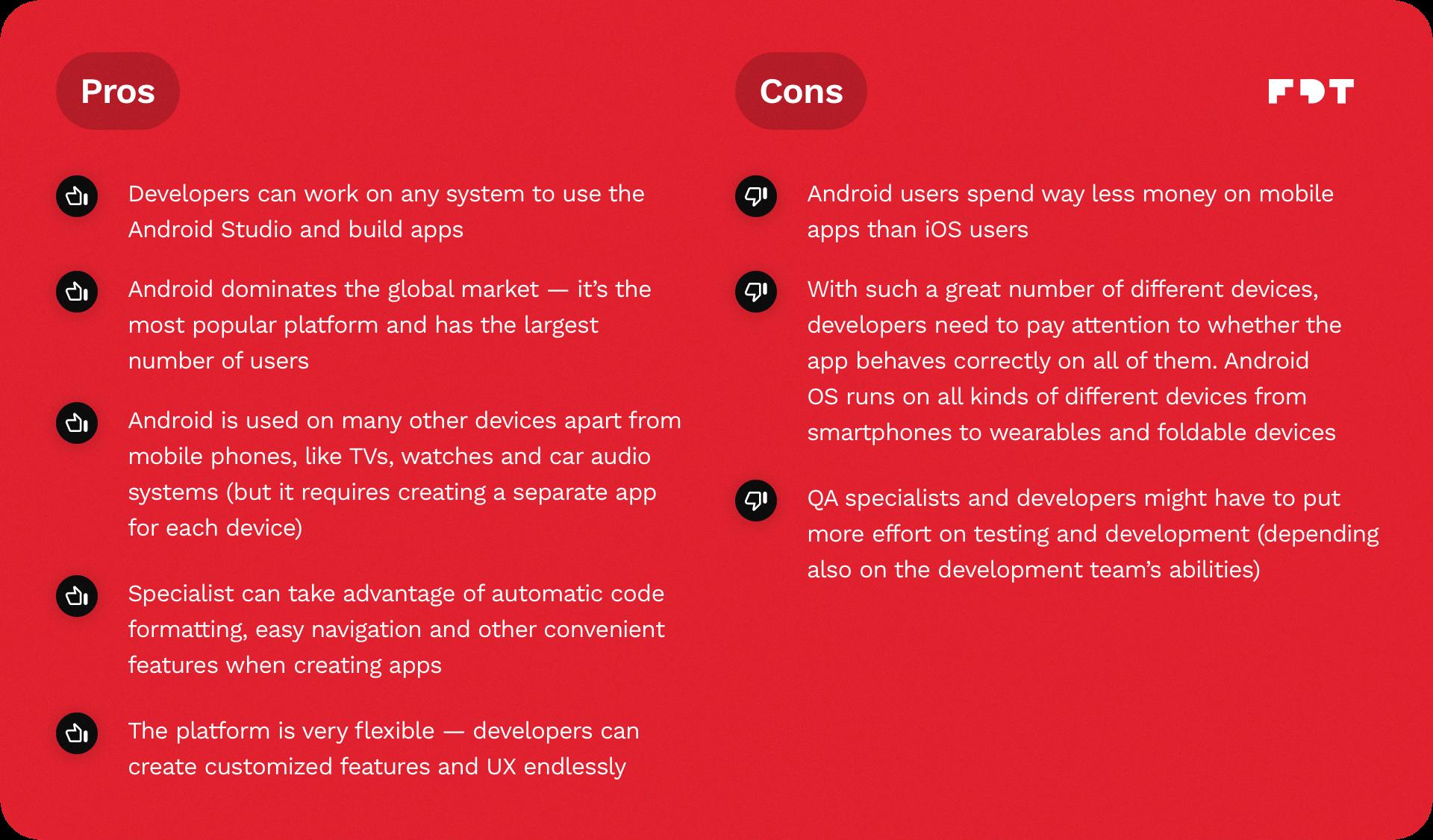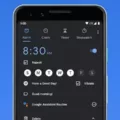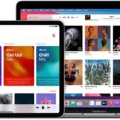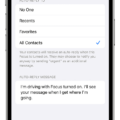App development is a rapidly growing field that offers countless opportunities for aspiring developers. With the increasing demand for mobile applications, developers have the chance to create innovative and user-friendly apps that cater to a wide range of needs.
When it comes to app development, two prominent platforms dominate the market: iOS and Android. Each platform has its own set of advantages and challenges, making it essential for developers to understand the differences before embarking on their app development journey.
One question that often arises is whether iOS app development is easier than Android. The answer to this question is not straightforward, as it depends on various factors such as the developer’s skillset, project requirements, and target audience. However, there are some aspects that can be considered when comparing the two platforms.
One notable advantage of iOS app development is the uniformity of devices and operating systems. Apple has a limited range of devices, which makes it easier for developers to optimize their apps for different screen sizes and resolutions. Additionally, the iOS ecosystem is known for its stability and reliability, with regular software upgrades and a rigorous app review process that ensures security and privacy.
On the other hand, Android app development can be more challenging due to the fragmentation of devices and operating systems. Android has a wide range of devices from various manufacturers, each with their own specifications and operating system versions. This makes it crucial for developers to thoroughly test their apps on different devices to ensure compatibility and performance.
Another factor to consider is the programming languages used for app development. iOS apps are primarily built using Swift, Apple’s native programming language, which is known for its simplicity and ease of use. Android apps, on the other hand, are typically based on Java and/or Kotlin, which may require a steeper learning curve for developers who are unfamiliar with these languages.
When it comes to monetization, Android apps have the advantage of a larger user base. While iOS users tend to spend more on in-app purchases, Android users are more numerous, resulting in a higher potential for ad revenue and a larger customer base. However, it’s important to note that the revenue per user may be lower on Android due to the larger user base.
The question of whether iOS app development is easier than Android is subjective and depends on various factors. Both platforms have their own advantages and challenges, and it ultimately comes down to the developer’s skills, project requirements, and target audience. Regardless of the platform chosen, becoming a proficient app developer requires dedication, continuous learning, and keeping up with the latest industry trends.
Why Do Developers Prefer IOS Over Android?
Developers often prefer iOS over Android for several reasons:
1. Easier Development: iOS app development is considered to be easier and more streamlined compared to Android. This is because the programming language used to build iOS apps, Swift, is designed specifically for iOS development and provides a clean and intuitive syntax. On the other hand, Android apps are typically based on Java and/or Kotlin, which can be more complex and require more code to achieve similar functionality.
2. Consistent User Experience: iOS devices are manufactured by Apple, which allows for a more consistent user experience across different devices. This uniformity simplifies the development process as developers do not have to account for a wide range of screen sizes, hardware specifications, and software versions. In contrast, Android devices are manufactured by various companies, resulting in a fragmented ecosystem with different screen sizes, hardware capabilities, and software versions. This fragmentation can make it more challenging for developers to ensure their apps work seamlessly on all Android devices.
3. Higher Revenue Potential: Although Android has a larger market share in terms of devices, iOS apps generally generate higher revenue for developers. iOS users tend to spend more on apps, in-app purchases, and subscriptions compared to Android users. Moreover, the App Store’s strict review process ensures a higher quality standard for apps, which can lead to increased user trust and willingness to pay for apps. This higher revenue potential attracts developers who are looking to monetize their apps effectively.
4. Strong Developer Tools and Resources: Apple provides a comprehensive set of developer tools and resources to support iOS app development. Xcode, the official integrated development environment (IDE) for iOS, offers a wide range of features, including debugging tools, simulators, and interface builders, making the development process more efficient. Additionally, Apple’s developer documentation and community support are highly regarded, offering extensive resources and guidance for developers.
5. Early Access to New Features: Apple often introduces new features and technologies in its iOS updates, and developers typically have early access to these innovations. This allows developers to leverage the latest advancements and create innovative and cutting-edge apps. In contrast, due to the fragmented nature of the Android ecosystem, it can take longer for new Android features to reach a significant portion of users, which may limit the immediate adoption and impact of these features.
Developers prefer iOS over Android due to the easier development process, consistent user experience, higher revenue potential, strong developer tools and resources, and early access to new features. These factors contribute to the appeal of iOS for developers looking to create high-quality, revenue-generating apps.

Should I Build My App On IOS Or Android?
When considering whether to build your app on iOS or Android, there are several factors to consider. Here is a detailed analysis of the pros and cons of each platform:
1. User Base:
– Android: Android has a larger global market share, with a larger user base in many countries, especially in emerging markets.
– iOS: iOS has a more affluent user base, with a higher percentage of users in developed countries.
2. App Revenue:
– Android: While Android has a larger user base, the average revenue per user is lower. In-app purchases and advertisements generate less income per transaction but can reach a larger audience.
– iOS: iOS users tend to spend more on in-app purchases, leading to higher revenue per user. The App Store has a reputation for generating more app revenue.
3. Development and Testing:
– Android: Developing for Android can be more complex and time-consuming due to the fragmentation of devices and operating system versions. Testing on various screen sizes and resolutions is necessary.
– iOS: Developing for iOS is generally considered to be less complicated due to the limited number of device models and consistent software updates. Testing is relatively easier.
4. App Approval Process:
– Android: The app approval process on Google Play is generally quicker and less stringent. It is easier to get your app published and updated.
– iOS: The app approval process on the App Store is more rigorous and can take longer. Apple has stricter guidelines and quality control measures.
5. User Experience:
– Android: Android offers more customization options and allows for greater flexibility in terms of user interface design. It provides developers with more control over the look and feel of their apps.
– iOS: iOS is known for its consistent and intuitive user experience. Apple maintains strict design guidelines, ensuring a consistent and high-quality user experience across all iOS devices.
The decision to build your app on iOS or Android depends on various factors such as target audience, revenue goals, development complexity, and design preferences. Considering the differences in user base, revenue potential, development and testing requirements, app approval process, and user experience will help you make an informed choice.
Is IOS Development Easy Or Hard?
IOS development can be quite challenging, especially for beginners. It requires a solid understanding of programming concepts, as well as familiarity with the Swift programming language and Apple’s development tools and frameworks. Here are some factors to consider when assessing the difficulty level of iOS development:
1. Learning curve: If you are new to programming, iOS development can be quite daunting. You need to grasp fundamental programming concepts such as variables, data types, loops, and conditional statements. Additionally, you need to understand object-oriented programming principles.
2. Swift programming language: Swift is the primary language used for iOS development. While it is relatively easy to learn compared to older programming languages, it still requires time and effort to become proficient. You need to understand Swift syntax, data structures, functions, and optionals.
3. Apple’s ecosystem: iOS development involves working with Apple’s development tools and frameworks like Xcode, Interface Builder, and Cocoa Touch. These tools have their own learning curves, and understanding how to effectively use them is essential for building iOS applications.
4. Platform-specific considerations: Developing for iOS means adhering to Apple’s design guidelines and ensuring your apps work well across different devices and iOS versions. This requires a deep understanding of iOS-specific concepts like app lifecycle, user interface design, app permissions, and device capabilities.
5. Continuous learning: The iOS platform evolves rapidly, with new features and updates introduced regularly. As an iOS developer, you need to keep up with these changes, learn new APIs, and adapt your skills accordingly. This constant learning process can be demanding but is vital to stay relevant in the field.
Despite the challenges, there are numerous resources available to help you learn iOS development, including online tutorials, documentation, and training courses. With dedication and persistence, it is definitely possible to become a proficient iOS developer. However, it is important to be prepared for the initial difficulty and be willing to put in the effort to continuously improve your skills.
Are Apps Better On IOS Or Android?
When it comes to comparing the quality of apps on iOS and Android, there are several factors to consider. While both platforms offer a wide range of apps to choose from, there are some notable differences in terms of quality, security, and user experience.
1. App quality:
– iOS: Apps developed for iOS tend to have a reputation for higher quality and better design. This is partly due to Apple’s strict app review process, which ensures that only well-designed and functional apps make it to the App Store.
– Android: The Google Play Store, on the other hand, has a more relaxed app review process, which can result in a larger number of low-quality or poorly optimized apps. However, this doesn’t mean there aren’t excellent apps available for Android; it just requires more careful selection.
2. Security:
– iOS: Apple’s iOS is known for its strong security features. Regular software upgrades and a strict app review process help to minimize the presence of malware and protect user data. The closed ecosystem of iOS also makes it more difficult for malicious developers to distribute harmful apps.
– Android: Android, being an open-source platform, is more susceptible to security issues. The Google Play Store has had instances of malware-infected apps slipping through the cracks, making it important for Android users to exercise caution when downloading apps from unfamiliar sources.
3. User experience:
– iOS: iOS is often praised for its smooth and consistent user experience across devices. Apple’s strict guidelines for app design and performance help ensure that apps run smoothly and are easy to navigate.
– Android: Android offers a more customizable user experience, with a wide range of device options and customizations available. However, this diversity can sometimes lead to inconsistencies in the user interface and user experience across different devices and versions of Android.
4. App availability:
– iOS: While the iOS App Store boasts an extensive selection of apps, it is known to have stricter guidelines for developers. This can occasionally result in certain apps or features being available on Android but not on iOS.
– Android: The Google Play Store has a larger number of apps available, including some that may not meet Apple’s strict guidelines. This gives Android users access to a wider range of app options.
Both iOS and Android have their own strengths and weaknesses when it comes to apps. iOS tends to offer higher app quality, stronger security, and a more consistent user experience. On the other hand, Android provides a more customizable experience and a larger app selection, although it may be more susceptible to security issues. Ultimately, the choice between the two platforms depends on individual preferences and priorities.
Conclusion
App development is a complex and dynamic field that offers numerous opportunities for businesses and individuals alike. Whether you choose to develop for iOS or Android, there are certain factors to consider.
If you prioritize a larger user base and potential for advertising revenue, Android development may be the way to go. Android apps have a wider reach, as there are more Android devices in the market. However, it’s important to note that in-app purchases may generate less revenue on Android compared to iOS.
On the other hand, iOS development offers a more streamlined and secure environment. The use of Swift, the native programming language for iOS, provides a standardized and efficient development process. Additionally, the rigorous app review process and regular software upgrades ensure enhanced security and privacy for users.
Becoming an iOS developer requires dedication and perseverance, but there are numerous resources available to help you along the way. Training courses and online tutorials can assist you in mastering the skills necessary to excel in iOS development.
The choice between iOS and Android development depends on various factors, including your target audience, revenue goals, and development preferences. It’s essential to carefully evaluate these factors before embarking on your app development journey. Regardless of your choice, the demand for mobile apps continues to grow, providing ample opportunities for developers to succeed in this thriving industry.








